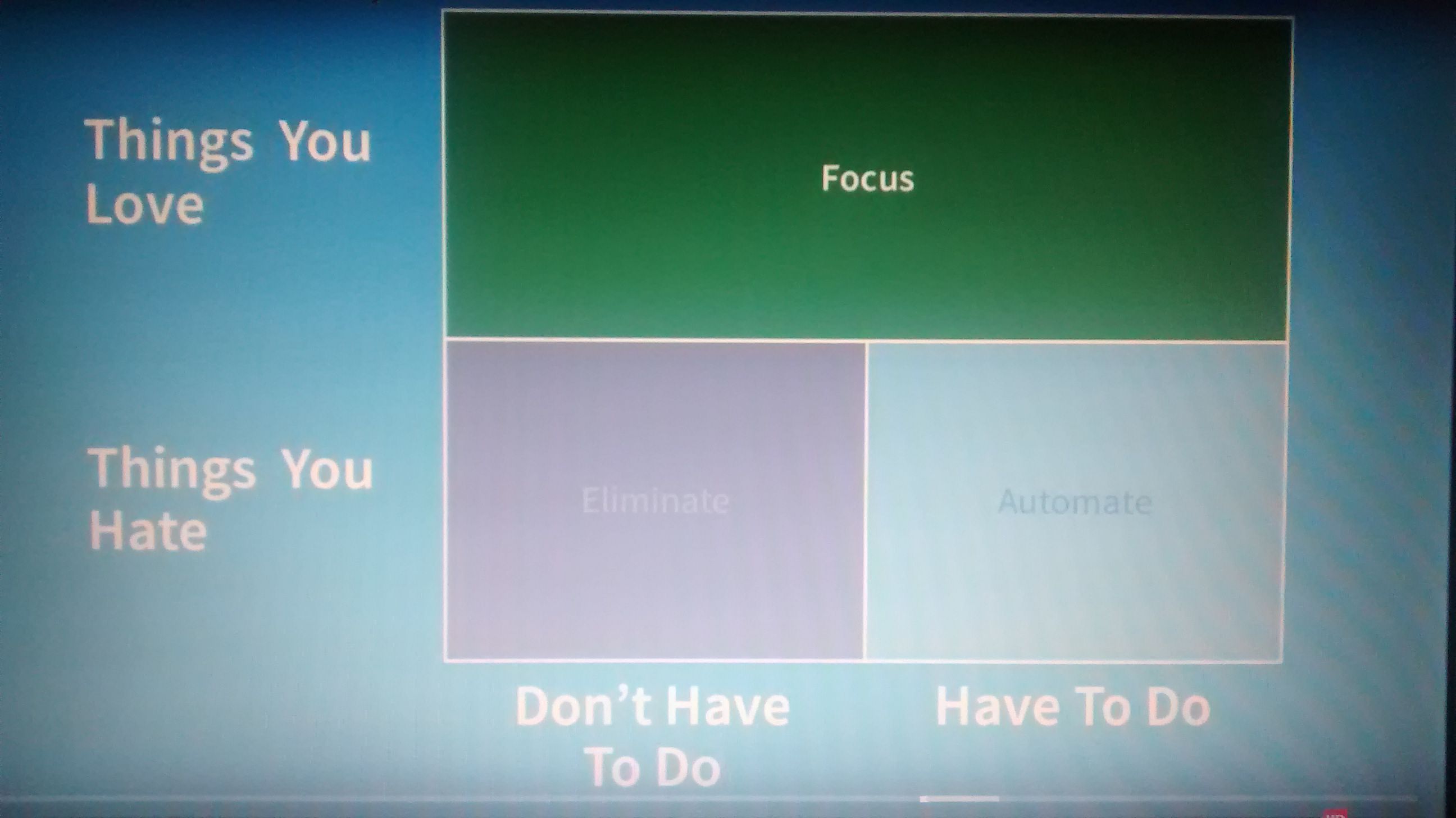cascadeco
New member
- Joined
- Oct 7, 2007
- Messages
- 9,080
- MBTI Type
- INFJ
- Enneagram
- 9w1
- Instinctual Variant
- sp/sx
It's always seemed to me that following your passion is a luxury, one associated very strongly with having the freedom to fail. Many people don't. Struggling to pay the bills and working three part-time jobs? Someone telling you to pursue a passion for international travel is insultingly unrealistic. Another person with greater means may be able to turn that into a career reviewing hotels, but almost everyone with a passion for travel winds up working at something they don't enjoy nearly as much (if at all) to travel when they can save up the money and time for a vacation.
The whole "follow your passion" genre of inspirational speeches is almost exclusively authored by those who have come out on top of a brutal process of selection. How many speeches do folks with a passion for electronics but who failed to make a career of it get to make, compared to one Steve Jobs? I'm guessing pretty close to zero. That doesn't mean that Jobs and others are inauthentic when trying to inspire others to follow passions, but for a lot of people, it's simply not realistic -- either by circumstances, talent, luck, etc. It's a version of the same fallacy that confuses necessary effort with sufficient effort. Working hard is often necessary to succeed. It's not nearly as often sufficient for outstanding success.
Sort of a pessimistic outlook on it, but that's always the way it's seemed to me. The OP's article on creating passion is probably closer to realistic, but seems like it's trying to conflate "following your passion" with "work hard, care, and make the best of your circumstances and abilities". The latter seems like a pretty positive and realistic approach for many people (much more so than "follow your passion").
I think that this ties into what I mentioned above... even if you may have some freedom to fail, if you don't feel that you do, it's very hard to take risks. This is probably one of the defining flaws that I see in myself. I've *never* felt that I've the freedom to fail, at anything. On the other hand, I've made pretty conservative choices and have done fine with them, in most respects -- but I almost certainly could have done better in many aspects if I'd had less fear of failure.
There's certainly truth to the realism element. And, that the ability to follow ones passions/interests can often imply, as you say, the luxury to do so. The freedom, at least, and ability to make choices that enable you to. It's certainly true that in many parts of the world, this may be immensely more challenging, or downright impossible given circumstances - if one is enslaved, or born into poverty, or things such as that.
But, that aside, here in the western world -- yeah, income can be a real struggle and can limit things to some extent. And yeah, there is always reality. It's funny you brought up the travel writer example, as I know of someone who actually persevered with that, beginning efforts like in 2003, selling house and leaving secure job, not having any income coming in for like two years, eventually making it as a travel writer for about 8-10 years running. This person recently left the business due to changes in the business and not being able to make it anymore. So yeah- reality is there. But it's also true that when this person started out, wanting to be a travel writer, it in many ways was completely unrealistic and unlikely re success -- i.e. most people would have viewed it that way, even if they'd also say 'well, good luck!'. And yet the person did in fact succeed.
otoh, everyone can make small choices, or giant choices, that can enable more ability to follow passion vs less. Maybe it means doing a job one hates for a while, to enable something greater down the road. There are a million scenarios. It's just that... there's usually a sacrifice element, and I think there's usually a pretty big risk element. Or an element of turning lifestyle upside down. It doesn't usually go hand in hand with comfort, in other words. It could mean getting rid of as much as possible so that one doesn't have many bills. It could mean being viewed by others as 'unsuccessful' due to not having what's viewed as a 'good job'. And so on.
I was raised in the Realism outlook, kind of how you outline here. I get it, and I've bought into it in the past quite a lot. Very significantly, actually. It kept me in a certain spot for many, many years. But I also think there's a balance that can be struck, and from personal experience it is often about facing fears and giving something a go. And turning things upside down sometimes. Doesn't mean in the end one will be a 'success' at it, but yeah. I guess in the end it's about being happy with your life and the choices you're making.

